
Publisher:
Bonnie King
CONTACT:
Newsroom@Salem-news.com
Advertising:
Adsales@Salem-news.com

~Truth~
~Justice~
~Peace~
TJP
Nov-15-2010 08:15

 TweetFollow @OregonNews
TweetFollow @OregonNews
The King of Gonzo War Journalism and I- PART 1
Dave Victor MacMillan for Salem-News.comClarity amid controversy...
 Dave MacMillan and Tim Page |
(HO CHI MINH CITY, Vietnam) - War Photographers sometimes take on a larger-than-life level of character.
Dennis Hopper in Apocalypse Now |
In introducing his classic The Pilgrim, Chapter 33, Kris Kristofferson states that he wrote the song about Dennis Hopper, the legendary actor who, in the 1979 film Apocalypse Now, played a composite characterization of the Harlequin in Conrad’s Heart of Darkness, and of Page’s best friend, the long-lost son of Hollywood swashbuckler Errol Flynn, photojournalist Sean Flynn.
Page long claimed this movie character was based on him; in the years after the film he further assumed that persona in so many ways that it is a bit if a struggle when you meet him to find the true essence of the man.
Even he seems to have difficulty separating the myth from his real self.
THE PILGRIM: Chapter 33 performed by WILLIE NELSON |
The Pilgrim, Chapter 33
“See him wasted on the sidewalk in his jacket and his jeans,
Wearin' yesterday's misfortunes like a smile
Once he had a future full of money, love, and dreams,
Which he spent like they was goin' outa style
And he keeps right on a'changin' for the better or the worse,
Searchin' for a shrine he's never found
Never knowin' if believin' is a blessin' or a curse,
Or if the goin' up was worth the comin' down“He's a poet, he's a picker
He's a prophet, he's a pusher
He's a pilgrim and a preacher, and a problem when he's stoned
He's a walkin' contradiction, partly truth and partly fiction,
Takin' ev'ry wrong direction on his lonely way back home.“He has tasted good and evil in your bedrooms and your bars,
And he's traded in tomorrow for today
Runnin' from his devils, Lord, and reachin' for the stars,
And losin' all he's loved along the way
But if this world keeps right on turnin' for the better or the worse,
And all he ever gets is older and around
From the rockin' of the cradle to the rollin' of the hearse,
The goin' up was worth the comin' down”Written by Kris Kristofferson.
A Page in History
The above-quoted Kris Kristofferson lyrics might come close to being the most accurate description of Tim Page, one of the most celebrated, yet enigmatic photo journalists of all time.
On the 13th of September this year Page broke his hip after falling down an open manhole cover outside his hotel in Ha Noi. After he was soon evacuated to Thailand’s Bumrungrad Hospital, it was found during pre-operation tests that he would require emergency heart surgery to save his life. This would have remained undetected had the accident never happened – a real blessing in disguise.
I myself was very upset about this unhappy turn of events, and prayed that Tim Page would pull through. Initially, a lot of people were surprised by my concern and affection for this man, especially after the quagmire of a media war that was fought between us earlier this year (2010) in newspapers and other media worldwide.
The history between Page and me goes deeper then the black and white shots fired in the press. Deeper than both of us decided to make public during the battle.
Arguably, Page rates as the third-greatest to ever pick up a camera and to become a combat photographer, perhaps behind Larry Burrows and Robert Capa. Page is a man who understands the meaning of survival more than most human beings alive today or those of generations past.
As a result of the risks he took, in pursuit of the same level of fame and respect enjoyed by his childhood hero, Robert Capa, Page was one to throw caution to the wind. He was wounded five times; twice the wounds were so severe that they were technically fatal, yet each time he crossed over to the other side and came back again, to live and fight another day. His second chances at life enabled him to collect more images of the world at war, and to use his personal horror stories imbued with fatalistic humor both to further mythologize in his books and to give him an air of invincibility in social surroundings.
The legacy of War Photographer robert Cappa |
When I reflect on the last few years of my life, I find that my existence has been intertwined with a decades-old mystery which has grabbed hold of me much in the same way as it has grabbed Tim Page, and pointed me in a direction that I cannot fight against.
Page has actively been trying to resolve the case of the disappearance, presumed to be due to homicide by Khmer Communist forces, of his friends and colleagues Sean Flynn and Dana Stone. He has been pursuing this cause now since 1990, when he entered a still war-torn Cambodia in search of answers.
His journey culminated in the book Derailed in Uncle Ho’s Victory Garden and the documentary film Danger on the Edge of Town, both of which feature an amazing array of documentation and photographs showing exactly who Flynn and Stone were, and telling their stories right up until the time of their disappearance.
In the film, Page describes his personal search for the two missing men and, most unfortunately, through a series of out-and-out fabrications and highly questionable eyewitness accounts, inaccurately claimed to have resolved the fate of Flynn and Stone.
It’s due to this that I see a cruel irony with the “denouncing” he was engaged in against this “bone hunter” on my first attempted recovery mission in Cambodia earlier this year.
The men whose fate he actually did resolve, though, were Larry Humphrey and Clyde McKay: respectively a U.S. Army deserter and the mastermind of a mutiny aboard the U.S. ammunition ship the U.S.S. Columbia Eagle.
These two men had been assisted by Louise 'Smize' Stone (wife of Dana Stone) in breaking out of the Mekong-River prison in which they had been confined by the Khmer Republic authorities.
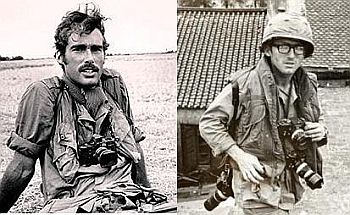 Sean Flynn and Dana Stone |
Smize gave them enough money (supplied by Sean’s mother, Lili Damita) to cross into Khmer Rouge territory. Their intention was firstly to join the Khmer Rouge, who they hoped would see them as the “revolutionaries” they claimed to be, and secondly – to secure the safe release of Sean Flynn and Dana Stone. Smize also gave them cameras to use as props for cover as journalists, as it was believed that in the event of capture by unfriendly forces this would ensure better treatment.
The two men in fact survived captivity, and right up until today are considered to be one of the reasons why the time of death of Sean Flynn and Dana Stone is wrongly recorded as June 1971.
The case of Humphries and McKay, and that of Flynn and Stone, otherwise referred to as Case 1588, have in a sense become intertwined and diluted the truth of their fate, long hidden in the jungle.
In reality, nobody knows the true date of Flynn’s and Stone’s death; both disappeared without a trace on that fateful day April 6th, 1970, on a dusty road in Svay Rieng.
Around about the time I met Page, it was not well known to the public or, it seemed, even to Page himself, that the two men killed in June 1971 in Phum Khmum District in Kampong Cham were not Flynn and Stone.
Just prior to meeting Page, I had read the final chapter of Jeffery Myer’s joint biography of Errol and Sean Flynn Inherited Risk, a book which presented in its final chapter the theory that Flynn Junior was euthanized by a Khmer Rouge doctor in a jungle field hospital in Phka Dong village, Kampong Cham in late 1971. It is hypothesized that this took the form of a lethal injection of the anti-psychotic drug Largactyl on the order of Eastern Zone Chief Ta Phim; Flynn’s malaria had become so intense that there was no other choice. I brought up this hypothesis in a discussion with Page during one of his prolonged stays in Vietnam; at the time my boss was sponsoring Page’s photo exhibition “From War to Peace”, and had given me the role of liaison man between the sponsors and Page.
I recall Page didn’t seem very impressed by my inquisition relating to his 1991 recovery mission and his so called “find” of Flynn and Stone’s teeth, at the time the world media jumped on his story and falsely declared that the mystery of Flynn and Stone’s disappearance had finally been solved.
During his 1991 mission he had been following one the many “Sean Flynn” last known alive leads in quite possibly one of the strangest and most complicated disappearance cases in modern history.
The problem being with the 1588 Case is that it crosses over with at least thirty other Missing in Action cases, US Army and CIA assets in Cambodia reported a plethora “sightings” of the two and clues to Flynn and Stone’s potential fates.
With most of the eyewitnesses and the people who knew the real facts about Flynn and Stone’s fate being long dead victims of the Pol Pot Regimes purges.
Case 1588 as far as cold disappearance/homicide cases go, is 10 out of 10 hard.
Because it was such a high profiled case, the “facts” have long been taken over by mythology, legend, Cambodian superstitions and village rumors to a point where its difficult to disseminate between the two.
Page’s book Derailed in Uncle Ho’s Victory Garden tells his story and that of his Flynn searching adventures in Cambodia, his “find” had essentially defined him, and his biography had hailed him as the man who had solved Case 1588 over 15 years before.
As luck would have it, Page had also read the book Inherited Risk. As a result, he contacted another veteran Indochina conflict journalist/photo journalist Matt Franjola in 2005 at a journalists’ re-union in Ho Chi Minh city and asked him for the transcripts of the interview Franjola conducted with the Khmer Rouge defector Heng Pheng, a trade liaison and one-time medical assistant at Phka Dong.
Pheng had escaped captivity in the Phka Dong area in late 1971 after being arrested and interrogated for over a month in the Khmer Rouge jungle gulag. He had been under suspicion of being an enemy of the revolution due to his mixed Chinese ethnology and long association with the Viet Cong and Vietnamese-trained Khmer Minh.
Pheng had bribed his way across the border into Vietnam and attempted to defect to the South Vietnamese Army. Straight away at his debriefing he divulged information concerning the apparent execution of a civilian journalist that he had witnessed. U.S. Intelligence and South Vietnamese authorities believed he was fabricating the story in order to obtain refugee status and earn himself a ticket to America.
After his unsuccessful attempt to defect to the U.S.A and/or the South Vietnamese authorities, in 1975 Pheng returned to the Khmer Republic-controlled capital of Phnom Penh, a city under siege by the burgeoning Khmer Rouge guerilla force.
In March 1975, when the inevitable fall of Phnom Penh was only a matter of time, veteran Indochina journalist Matt Franjola found out about Heng Pheng through one of his indigenous sources; he learned that Pheng had told authorities in Vietnam about the execution of a journalist in Phka Dong, Kampong Cham.
Armed with the 8X10 photographs supplied to him by the Committee for the return of the journalists missing in South East Asia, Franjola organized an interview with Heng Pheng in the besieged capital. After a series of grueling establishing questions he quickly came to the view that what Heng Pheng’s own bona fides were in order, and that he was quite possibly telling the truth.
Franjola’s resulting report was significantly scaled down by editors at the New York Times to a small article. Although it was published, it became lost in the more attention-grabbing headlines of: the retreat of U.S. Forces in Indochina, the fall of Phnom Penh, the fall of Saigon to communist forces, the emerging refugee crisis. It was then buried in time and memory of a place which became closed off to the outside world for 20 long years.
 Pol Pot, leader of the Khmer Rouge |
Heng Pheng himself was processed in Cambodia’s notorious Toul Sleng prison in November ‘76 as an enemy of Pol Pot’s regime. The last recorded piece of information about this man was contained in his captors’ daily report to prison authorities, where is was laconically noted “Health status: weak”. Considering that nobody ever survived this prison, this information seems redundant. Pheng’s photo is one of the many sad and haunting faces adorning the wall of the prison-turned-museum, his bones probably lying in one of the pits at the Choeng Ek killing field on the outskirts of Phnom Penh.
After two years of knowing Page and collecting debts for him, he decided to share with me his thoughts about the Myers-published report concerning Matt Franjola’s interview with Heng Pheng. Page and I met on a sunny morning in Saigon and had breakfast in the sunshine outside of Underground Bar.
Tim handed me a photocopy of Matt Franjola’s report, and we spoke at length about the theory. He then informed me that he was going to go searching for Flynn again and asked me if I would like to take on the responsibility of leading the documentation analysis and investigation side. In other words, did I want to become a member of his team?
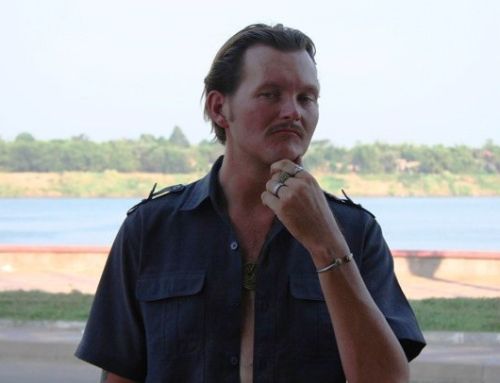
I eagerly agreed, and from there we embarked upon a trail which would see us becoming good friends, only to turn into enemies fighting it out in the forum of the worldwide press.
As I sit now in the twilight of a Southern Vietnamese evening, listening to the majesty of the music of the monsoon’s patter and smelling the perfume of distant joss sticks and damp tropical leaves, I am tempted and seduced into nostalgia.
I sit here as a healthy young man who no regularly goes through long periods of Teetotalling who very rarely drinks or smokes, a perpetually single hermit who keeps his mobile telephone switched off, someone who spends most of his time conducting research into a plethora of civilian missing in action cases, planning his next scientific expedition which will hopefully resolve the mystery of the missing journalists in Cambodia. I plan on launching this mission during the upcoming dry season.
Apart from that, I spend whatever spare minutes I can snatch atop a mountain studying Zen Buddhism on the site where the venerable Vietnamese Buddhist monk Thich Thanh Tu obtained enlightenment.
I can’t help but be mentally and emotionally transported back to another time. Back to the time where I moved through the city streets like a poisoned rat, crawling drunk and lost under the city lights, gasping through the humidity in a modern Kerouacian realm of late nights fueled by cigarettes, alcohol and assorted debauchery.
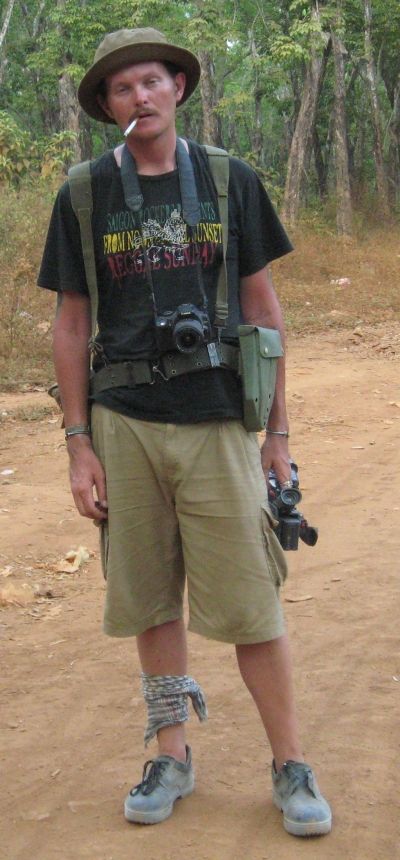
Dave MacMillan exhausted after a day of investigating |
I would take up residence in dark corners of seedy bars, discussing at length philosophy, art, morality, beliefs – all in the way only opinionated drunks can, my articulate manner making me more friends than losing them (in most cases anyway).
I had the erroneous notion in my head that severe alcoholism in itself was true romanticism in a modern sense. When in reality it was a signal my brain could not yet decipher, it was my road to ruin. I was neither conscious or sober enough to acknowledge or understand the signposts.
The tissue in my throat was becoming more and more burnt and scarred each day and after some major binges I could neither speak nor breathe properly for days on end. Some nights I could easily smoke two or three packs of cigarettes while I beat myself up and continually pushed for the time where I would die lonely in the shadows of these pagan streets.
Just under eighteen months before in late October 2006 I had met a girl called Luu who would change my life forever – in some amazingly positive ways, yet also in extremely negative ways.
I met her briefly one evening at a round of the hotly contested Ha Noi versus Saigon darts competition. I noticed her as soon as I entered the bar but figured that she must have been there with her boyfriend. After acknowledging her regular glances at me I approached her; her allure and my charm seemed to be made for each other. We finished our first meeting with her whispering in my ear to call her and then handing me a piece of paper with her number on it.
I called her the next day and we rendezvoused at a bar which five years before was owned by Vietnam’s most notorious and infamous gangster, Nam Cam. We chilled together shooting pool and drinking amid the chaos of the next round of the darts competition.
I told her that I was going to have to leave soon and motorcycle across to Vung Tau for the weekend. She kept asking me to stay longer, and in a spirit of compromise we decided to make the journey together.
We drove out to her house in the centre of China Town’s equivalent of Jamaica’s Trench Town, District 8; a place I would later adopt as my home.
After grabbing a few bits and pieces, we rode through the sunset and into to the twilight through southern lands of rice fields and subsistence-living, guided by the fires lit by peasants as a means of waste management. The smoke clouds mixing with the warm red and yellow night created the illusion that one has stepped back to a bygone era.
We arrived at my family’s place later that same evening, exhausted. I introduced my cute new friend to my brother and his wife, before retiring at Luu’s request to my bedroom at my brothers house. The bedroom would become a place she and I wouldn’t leave for the next two years, a place where we would create our daughter Geneva, more often than not the only place we ever had in common.
The more complicated our existence and relationship would become, the further I would shimmy down the drain pipe. We spent the majority of her pregnancy living on the outskirts of Ho Chi Minh City in a little shack by the sleepy river, positioned next to the monolithic dusty and bustling highway and behind a steel fabrication workshop which operated seven days a week. Morning wake up would be a discordant symphony of steel grinders at dawn.
Many of my hours were be spent in late-night drinking sessions, conversing pointlessly with other drunken oxygen thieves about garbage. This was such a waste of time, thankfully lost forever to the short-term memory of the bar room.
Now I was more and more leaving Luu alone at a time when she needed the most support.
We decided that we would have to escape the environment of our existence by the river.
Shortly before our daughter, Geneva, was born, we moved closer to the hospital and took a place in District 8 which we would try our hardest to make into a home to in which to raise our little one.
I was on decent money at this time, and was striving for the dream I had longed envisaged – romanticized living as a drunk and happy communist minimalist.
Little did I know she wanted no part of it or me, and her true ambition was to rise up the Vietnamese social and class ladder and keep rising. Sadly for her, she was caught in a relationship with a drunkard who also happened to be the father of her baby daughter.
By this time I was starting to pull myself up a bit on the alcoholic abuse, and trying to spend as much time as I could with my wife and daughter, who was by now starting to walk and to develop her own personality.
But it was a matter of too little too late; I knew this for sure when Luu sat me down for a serious talk which would change the path of my journey forever. She told me that her cousin has asked that Luu work for her as a hostess at a Karaoke in Chinatown; she would send Geneva home to her family village for a few months until she decided she had made enough money, then she would give up the job.
This was an obvious exit strategy, but something I decided not to fight against. This decision was to save me a lot of years off of the back end of my life and a whole lot of heartache.
It wasn’t long, though, before she was lost in the Chinatown lifestyle – when a woman works as a momma-san, it’s only a matter of time before she winds up a slave to the sex industry.
She would arrive home late or not at all, and be missing for days on end. When she returned we would have huge arguments and even physical conflicts, which would culminate in our house being broken into pieces.
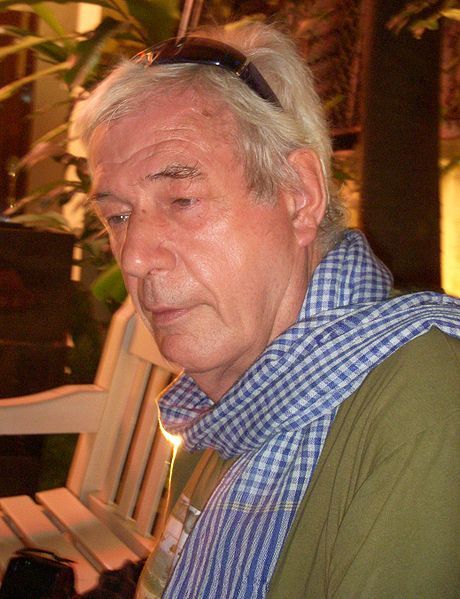 Recent photo of Tim Page in Phnom Phen |
Around this time, the news that Tim Page was coming back to town was a welcome change to my day-to-day existence; this would present more opportunities for socializing, learning about art, life and photography, and also for getting into random stoner mischief with the father of this pastime. Page had agreed to participate in a documentary film to be shot in Papua New Guinea; the purpose of the film was to follow Sean Flynn’s footsteps the year before his disappearance when he joined an expedition to determine the fate of Michael Rockefeller. Michael Rockefeller was the son of the prominent business man and the 41st Vice President of the United States, Nelson Aldrich Rockefeller. Michael went missing in 1961 during an expedition in the Asmat region of southwestern Guinea. However, one of the conditions Page had set to Schied about his participation in the production was that I had to join him as his assistant/body guard.
I had been training for months for the expedition by rock climbing with my good friend and rock climbing coach Richard Harper, we would climb in the heat of the day non stop until the sun went down and after a hard days training we would go out afterwards and participate in epic drinking sessions.
Although I was training so much my health was in the decline due to the constant attacks I launched on my system with drugs and alcohol, something was bound to break and it did.
I awoke at four a.m. on the Sunday that Page was due to arrive in town with extreme chest pains. I convulsed around the floor in confusion and fear for about an hour. Luu seemed more concerned that she was missing out on sleep than by my potentially dying on the spot; from time to time she would glance at me through sleeping eyes and curse me for disturbing her.
I lay there on the bedroom floor, holding onto my chest, thinking that this was my end. I glanced up at one the many framed prints on the wall, and stared at the image of Sean Flynn gazing blindly into the distance. This photograph was taken by Tim Page in the DMZ in 1967, and is an image which has forever haunted me. It has also prevented me from ever letting go of the mystery. It’s as if Flynn is challenging me to find him, asking “Where am I? Come and find me, Dave”.
By the time the pains began to subside I realized that I had just endured a mild heart attack. After catching my breath and somehow managing to calm down, I drifted back to an uneasy sleep.
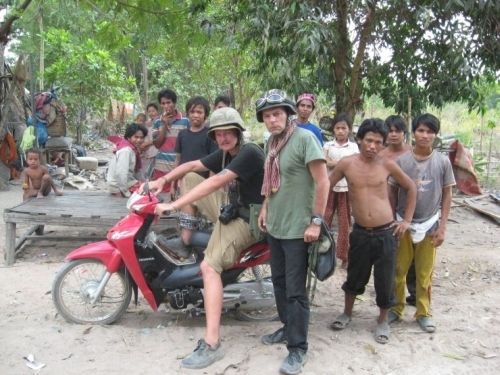
I didn’t stir until, in my semi-conscious state, I heard Luu showering. I listened to the music of the water beating onto the tiled floor and her singing a traditional Vietnamese song; the bathrooms acoustics magnifying the sounds as she washed her hair.
As she prepared to leave for an early shift at the Karaoke bar, she dressed in front of me as if I wasn’t even there. Although she had given birth to a child less than a year before, she was already well on the way to regaining her beautiful figure.
Things were going badly between us, but we were at the stage where although the relationship was seriously on the rocks, there was still an occasional star dust between us, giving some fleeting promise of a future together, if only momentarily.
She told me she was worried about my health and urged me to go to a doctor and find out what had happened to me. She said goodbye, got on a motorbike taxi and disappeared up the laneway.
She pretended to still care a little bit, and although she lacked technique, she was still a good-enough actor and charming enough to appease my mind at least for a few hours. Nevertheless, it was obvious she was looking for a way out.
Luu had long lost patience for me and my self-destructive behavior. Like everybody else in my life at the time, she knew that, unchecked, my drinking would eventually kill me, either from alcoholic complications or as a result of an alcohol-fuelled motorbike accident or street fight.
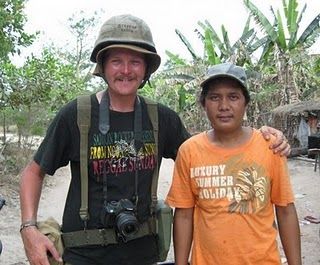 David MacMillan says he won't give up until he |
She was not at all impressed the nights I would come home covered in the blood of others after getting into violent street fights, and would sit up all night in a state of anxiety that I might’ve killed someone and expecting any minute that the police would come by and arrest me for murder.
In just two years I transformed from a thin, handsome and energetic young man into an overweight, alcoholic chain smoker who lived life on a fatalistic edge. This was a world away from the man Luu had first met and fallen in love with.
I’d spend sunset until midnight, almost every night of the year drinking at a 24-hour outdoor restaurant called Hung Vy in the Chua An Lac Alleyway in the heart of backpacker town, with a loose crew of misfit English teachers, homeless expatriates and mental health pensioners.
They were all f*ck-ups just like me, but they were likable f*ck-ups; and some of those guys have remained my friends even after my sobriety.
So much time is wasted in this exchange of self-destructive energy and burning the midnight oil for the sheer sake of it that, in the orient, one seems to be much older than one actually is.
The one thing we had in common was that we all lacked that thread of balance and guidance, so much so that over time we became a kind of dysfunctional family.
When I wasn’t at the bar I would be across town, propping up the corners of cocktail bars like the tragic Errol Flynn character The Roots of Heaven, talking tall stories about my adventures while womanizing with the local beauties.
The result of this lifestyle was psychosis, brought on by living in a cheap, neon, true-crime, oriental under-world and feeling like a walk-on character in a cheap photocopied James Elroy novel, all dog eared and with missing pages at the critical parts.
My focus was long lost in the bottle, and my varying interests made me a selfish and seemingly unimportant character in comparison to those who habituated my actual world. I was attuned to the realities that I was spending all of my waking time trying to escape from.
The end of my marriage was imminent and the sad irony of my addiction was the more guilt I felt about the pain I had inflicted on those who were sacred in my life, the further down I would go and the more I would turn to the bottle for a solution. Alcohol doesn’t wash you problems away – it irrigates them. I was only making it all worse.
Next morning, I backed my motorbike out into the street and checked reflection in the front window of my house, combing my hair back into a perfect quiff and donning my vintage Roy Orbison-style sunglasses. My face was as red as a beetroot; my blood pressure must have been at astronomical levels. I cursed my hangover.
The neighbors sat at their favorite little red-chair coffee shop, the men stripped to the waist and the women squatting, dressed in pajamas which look like they are made from cut price curtain material. They drink black iced coffee and smoke Virginia cigarettes, jabbering away like geese in a train-wreck combination of Mekong Delta and Saigon dialects.
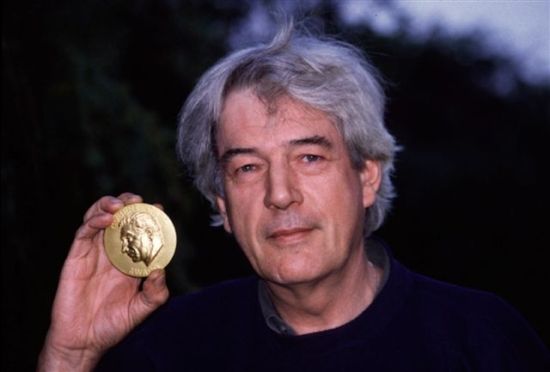 Tim Page with the Robert Capa Award for Bravery in Photojournalism – UK 1998 |
I was excited about seeing Page later that day. We would run through the last-minute details of the Papua New Guinea Expedition which was meant to begin three weeks hence. This was going to be a much-needed respite from my day to day life.
I started my motorbike and made my way through the twisted maze of Chinatown alleys – packed with the millions of nameless faces which populate the socialist movement of the people – heading for District 1 through the smoky, chaotic Ho Chi Minh City traffic system.
I made it to my favorite Indian restaurant Mumtaz, located in the entrails of the backpacker district, many hours early for my evening meeting. I was just starting started to enjoy my vegetarian lunch when the phone rang.
It was Page, and I walked to the front of the restaurant and answered the phone.
“Young David, how are we fairing this morning?” he said in his refined English accent, which harbors just a hint of Australian inflection.
“Yeah, I’m fine Tim. Just grabbing something to eat. What are you up to?” I said.
“Well, I’m just going to get some “brekkies”, and then I have to make my way to Cepage (a wine bar and restaurant) later this afternoon. Some German businessmen are coming by at about 4 p.m. they are interested in buying some prints off of me, I was just wondering if you wanted to catch up for a coffee?” he asked.
“Okay, no problems. I’ll pick you up from your hotel if you want. About an hour,” I replied.
“Okay. Sounds like a plan. See you then.”
The link to Part-2 in this special report will be posted here as soon as the article is published.
Written by Dave Victor MacMillan, edited by Blair Denholm
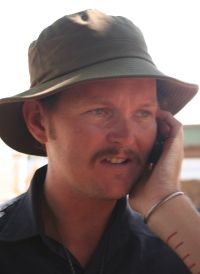 Australian born David Victor MacMillan, 29-years old at the time of this writing, has been living in Vietnam for 8 years. He is a commercial artist, designer, ex- front man of Australian Punk/reggae band Scarred Hope, ex-nurse, actor, martial artist, security expert, stylist, some time bodyguard, veteran resident of the Socialist Republic of Vietnam and a tracker and investigator who specializes in Missing Person cold cases. Dave has been on the trail of Sean Flynn, Dana Stone and all of their other missing journalist colleagues in Cambodia for the last three years and led the team responsible for the highly controversial attempt to recover Flynn's remains in Cambodia in March 2010.
Australian born David Victor MacMillan, 29-years old at the time of this writing, has been living in Vietnam for 8 years. He is a commercial artist, designer, ex- front man of Australian Punk/reggae band Scarred Hope, ex-nurse, actor, martial artist, security expert, stylist, some time bodyguard, veteran resident of the Socialist Republic of Vietnam and a tracker and investigator who specializes in Missing Person cold cases. Dave has been on the trail of Sean Flynn, Dana Stone and all of their other missing journalist colleagues in Cambodia for the last three years and led the team responsible for the highly controversial attempt to recover Flynn's remains in Cambodia in March 2010.
Dave says steadfastly that he won't stop until he finds Sean Flynn's remains. "I have been given this Indiana Jones tag because I do things differently." He sure does, beginning each day at 5:00 a.m., riding up to 120km through rubber plantations and bandit country looking for leads. And while on a dig, he doesn't mind using his North Queensland gruff to get the team motivated. "I call my workers slack bastards if they cant keep up with me and dig all day long."
He says he has always been fascinated by Sean's disappearance since he was a child, adding that he was a cult-fan of Errol Flynn and a founder of the Flynn Society of Indochina on Facebook. "Most of the other members are just in it for the hell of it but my interest is far beyond that," he says. "I came to Asia because I want to solve this mystery."
Articles for November 14, 2010 | Articles for November 15, 2010 | Articles for November 16, 2010
Quick Links
DINING
Willamette UniversityGoudy Commons Cafe
Dine on the Queen
Willamette Queen Sternwheeler
MUST SEE SALEM
Oregon Capitol ToursCapitol History Gateway
Willamette River Ride
Willamette Queen Sternwheeler
Historic Home Tours:
Deepwood Museum
The Bush House
Gaiety Hollow Garden
AUCTIONS - APPRAISALS
Auction Masters & AppraisalsCONSTRUCTION SERVICES
Roofing and ContractingSheridan, Ore.
ONLINE SHOPPING
Special Occasion DressesAdvertise with Salem-News
Contact:AdSales@Salem-News.com


Salem-News.com:

googlec507860f6901db00.html
Terms of Service | Privacy Policy
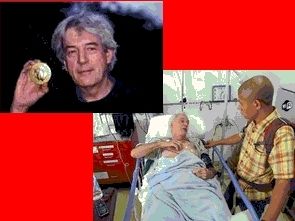
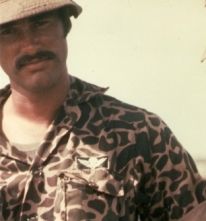
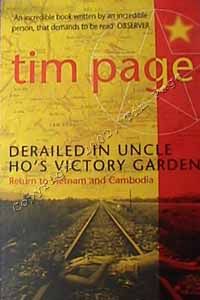
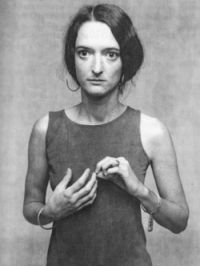
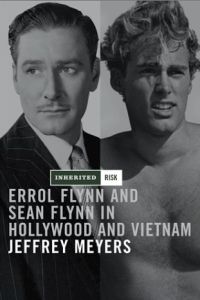
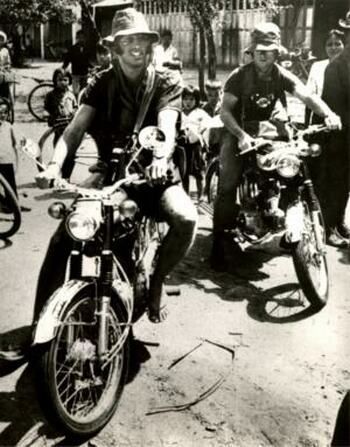
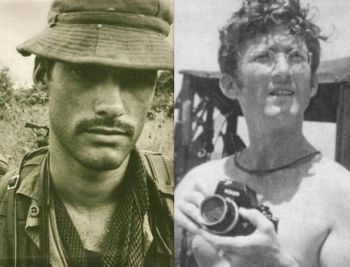
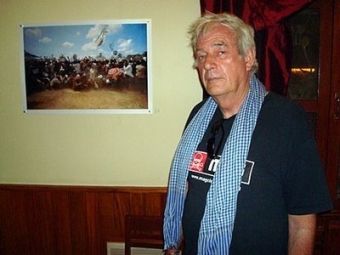

All comments and messages are approved by people and self promotional links or unacceptable comments are denied.
Brett Mackay November 18, 2010 2:33 am (Pacific time)
“He's always been a respectful young man. . . . If he wins, he goes over and shakes hands, just like when he loses.” I am happy to voice my opinion that Dave’s accounts are objective and factual. I was present through many of the conversations mentioned throughout this article. I was having lunch with Dave at Mumtaz when Page called and I recall meeting up with them briefly at the Deck late one afternoon where talk was loose confirming all of what I wasn’t present for. (Dave taking Page with all his gear on Dave’s little red Honda joker flying through the congested Saigon streets, now that was funny) If anyone is going to unearth the whole story to Sean Flynn’s death and bring his remains home, it will be Dave. Now to digress. (Anonymous November 15, 2010 , blarney stone...WTF Australians don’t talk like that... lucky it’s got a head on it or your hand would slip off Mate... ) (Jack Evans November 15, 2010 ) Coward, far from it, anyone that has meet Dave knows he’s a man to have in your corner. Anyone that has been to Saigon recently and not fallen in love with the hustle and bustle of the back streets surely has not spent time in Dave’s company, Great article mate.
Anonymous November 15, 2010 10:58 pm (Pacific time)
I think you've kissed the blarney stone one two many times, mate.
Jack Evans November 15, 2010 10:18 pm (Pacific time)
It is the coward who fawns upon those above him.
Tim King: Your quote from Junius invokes many thoughts, however I have to admit that I am missing the context. I only know that the two men this story accounts for are anything but cowards, in fact they are anti-cowards. There is no doubting any of it.
[Return to Top]©2026 Salem-News.com. All opinions expressed in this article are those of the author and do not necessarily reflect those of Salem-News.com.